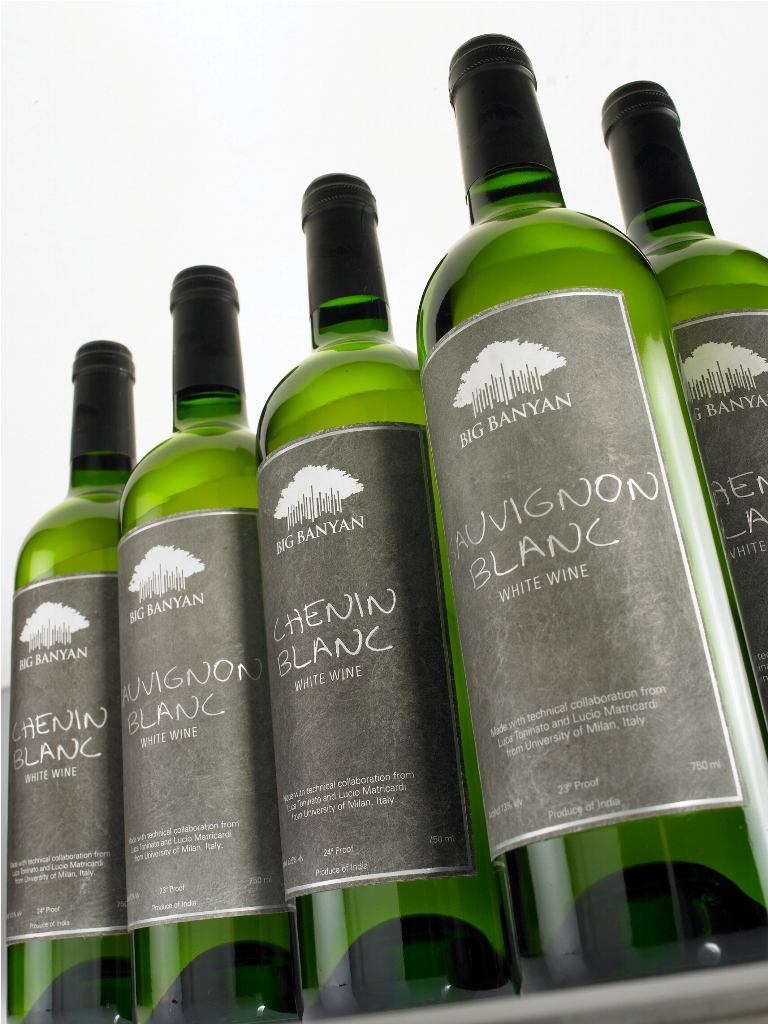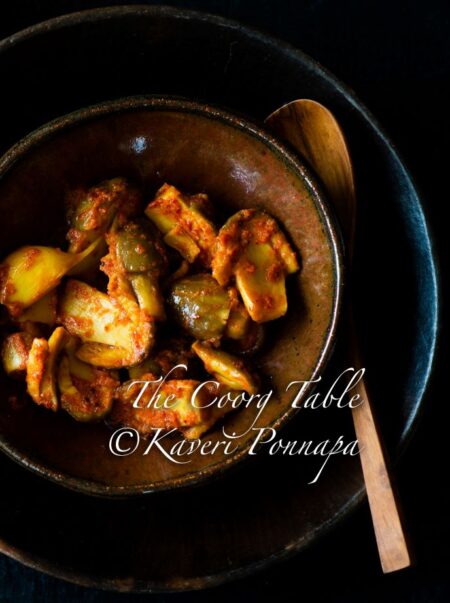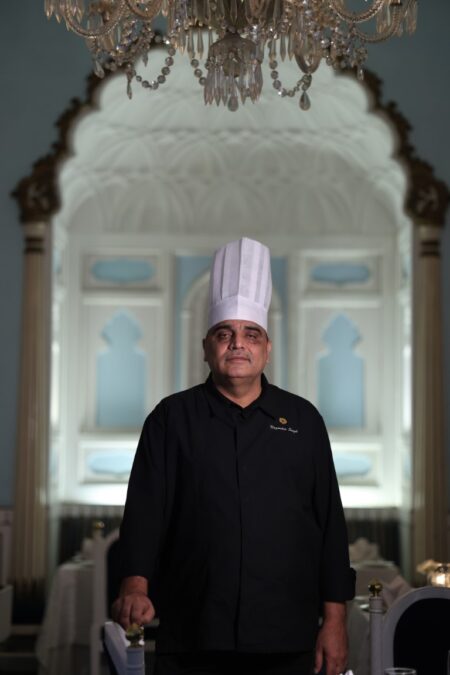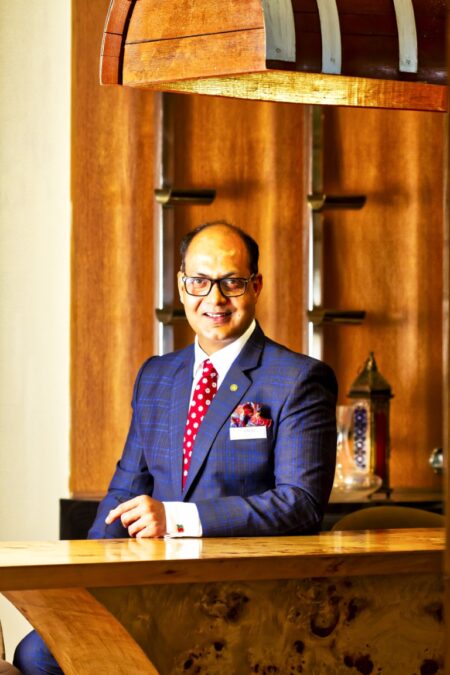Stephane Derenoncourt, regarded by some as “the most sensitive vinefier in the whole of Bordeaux” was in Bangalore in July. The legendary winemaker is associated with seventy wineries across the globe and, has clients in France, Spain, Italy, the US, Australia, Lebanon, Turkey – and now India – Southern India to be precise, in a rich, rice-growing belt between Bangalore and Mysore. This region of gravel mixed with red loam and gentle slopes, close to the river Kaveri is where Raghavendra Gowda’s Alpine Wineries is located. Gowda has invested considerable resources in advanced technology and in a first hand understanding of, and training in viticulturewith some of the best European wineries. His ambition is quite simple – to bring to the Indian consumer wines of a quality that will compete with the best in the world.
India’s young but dynamic wine industry has always looked West and laid it’s foundations carefully on the experience of French, Italian, South African and Californian experts, beginning with Michel Rolland, who steered Grover’s Vineyards to national and international recognition. While early attempts may have been guided to some extent by the need capture international attention and establish their credentials, coupled with a tentative understanding of domestic tastes and palates, for the new wave of Indian winemakers, over time, the boundaries have softened, so that they are looking at creating wines for the discerning oenophile, whether Indian or global.
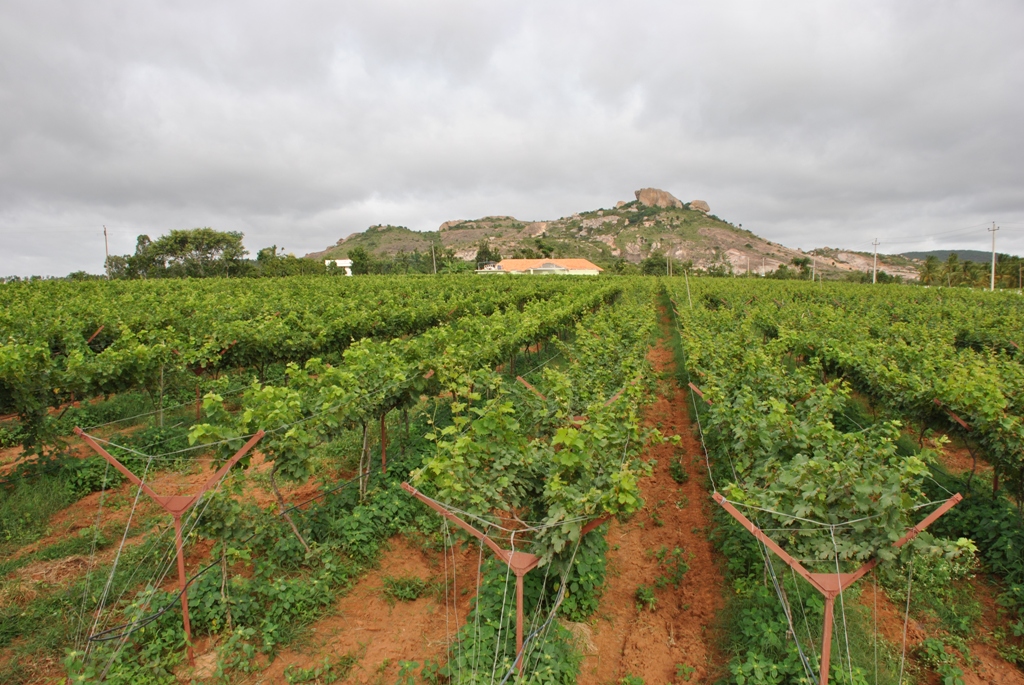
As Derenoncourt’s presence announces, the best talent in winemakingis being brought to India and while an eye to the international market remains, a subtle shift is taking place in the approach to crafting Indian wines, and their presentation. There is a new confidence and passion on the part of winery owners that is being channelized into educating the local palate, encouraging it to evolve gradually and organically. Slowly, a seamless interaction between soil, grape, grower, winemaker and oenophile is being established, with long-term investments in drawing the farmers who grow the grapes into this circle, by training them to choose quality over quantity in grape production.
Down south, in Karnataka, a major wine producing state, Big Banyan Wines has had Lucio Matricardi making their wines since 2005. Paul P. John of Big Banyan narrowed in on Matricardi for his understanding of Indian conditions and terroir as well as his strong focus on making wine an everyday drink, so crucial for the growth of the industry. Matricardi began with impressing on the farmers the importance of growing the perfect grape, without any compromises. He was also quick to grasp that the Indian palate was unaccustomed to a regular appreciation of wine. He therefore, introduced an education in the grape, steering Big Banyan towards creating and offering 100% single varietal wines of great consistency and quality, acquainting the palate with the subtleties of the grape. Planting, grafting, pruning, harvesting, crop management and soil analytics are managed by their viticulturist, Luca Toninato. So what you have are Chenin Blanc, Sauvignon Blanc, Chardonnay, Merlot, Shiraz and Cabernet Sauvignon, grown at their vineyards in Ramnagaram, near Bangalore and, the resulting wines, observes Sridhar Pongur, JMD and COO of John Distilleries, BBW “are 100% Indian in origin and palate, crafted with Italian expertise to international standards.”
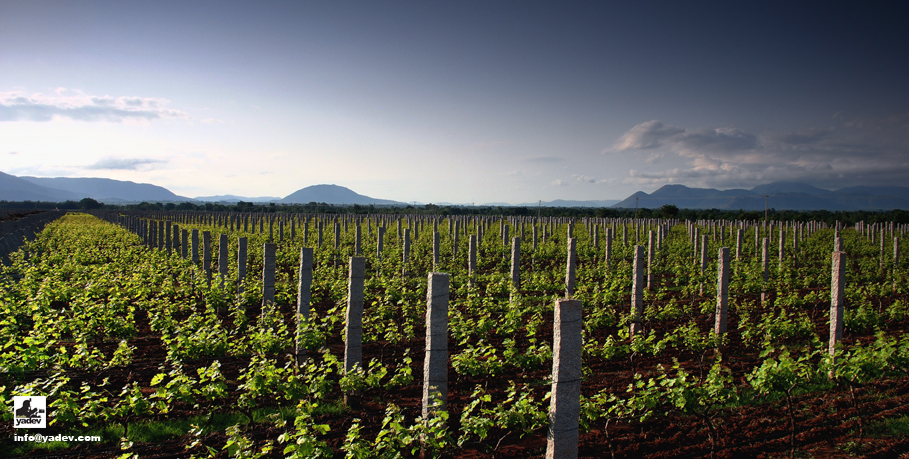
This education that Big Banyan have engaged in is very much a priority for Keshav Raju of the boutique Magpie Vineyards. A former IT professional who planted his root-stocks in 2008, travelled extensively across Napa, Sonoma, the Finger Lakes and South Western France, to come to the conclusion that “…to produce good wines, one must learn to produce good grapes.” The excellent wines of South Western France – Gascoigne, Marmande, Fronton and Gailliac – that rarely travel outside the region, but sell out locally, direct his vision. Raju extends this experience to wine lovers in India by importing small consignments of unusual varietals such as Mauzac, Colombard, Abouriou and Negrette from South Western France, introducing them through wine tastings, expanding the palate, raising awareness and expectations.
‘Small is beautiful’ is distilled into a philosophy of the best viticulture practices and limited production for Raju, with Magpie looking at about 5000 cases a year.
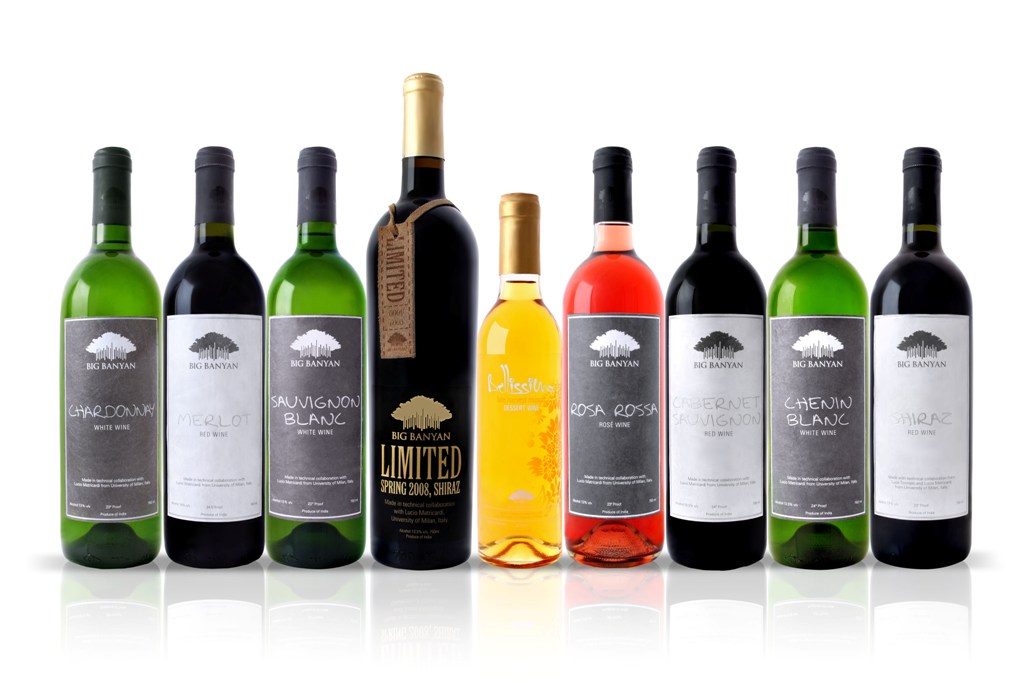
Niche is a concept that Big Banyan applies to the best from their cellars too, and, Sridhar Pongur draws attention to their Spring 2008 Shiraz – 6000 bottles number- tagged for the discerning oenophile. And at Alpine, with its expanse of 100 hectares, two on site weather stations, for accurate forecasting and control of the environment, putting them on par with the best wineries in Europe between 2006 -2010, Gowda has invested in trial plantings of pre- grafted saplings from rootstocks known for low productivity, less vigor and high quality grapes from reputed nurseries in France and Austria. Alpine’s terroir had been uncultivated for thirty years and, as Gowda puts it eloquently, “ promises its influential presence in the wines.” According to him, Derenoncourt feels that “India is ready for wines meeting global quality standards and… could substantially increase its wine exports.”
Indian winemakers continue to refine their winemaking practices and Lucio Matricardi observes: “In time, Indian terroir will only improve to yield great quality berries from which one can make very fine wine,” adding that “a bottle of wine speaks for itself.” And as the wine lovers palate evolves, the domestic market will drive higher standards of excellence. “ Proud, Niche Indian,” is how Big Banyan wines define their wines – it could well be the slogan for the new wave of Indian wines.
This article appeared in NOTCH, India’s first digital magazine.
Image Credits:

